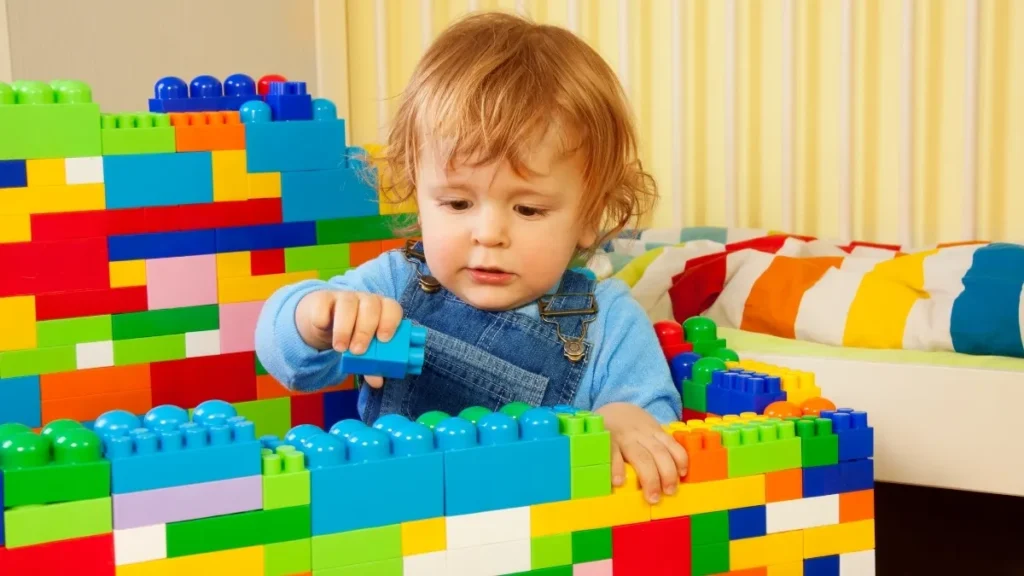Ever feel like your kids are constantly clinging to you?
Maybe you trip over Legos more often than you’d like, or hear “Mommy, can you…” a hundred times a day.
It’s natural to want to help our little ones, but fostering independence is crucial for their future success.
Here’s the good news: you can absolutely raise confident, capable kids who can tackle challenges and make their own way in the world.
So, let’s get right into it!
10 Tips to Raise Independent Child
Here are 10 tips you need to raise an Independent Child:
1. Encourage Self-Service from the Start

Think beyond just picking up toys. From a young age, involve your kids in simple tasks.
Let your toddler “help” you unload groceries (even if it means putting things back you just took out).
Offer a low shelf in the pantry for their healthy snacks or a pitcher they can use to pour themselves water.
As they grow, delegate age-appropriate chores. This instills a sense of accomplishment and teaches them valuable life skills.
Useful Phrases:
- “You can totally do this!”
- “Wow, look how strong you are carrying that!”
- “Would you like to help me with…?” (instead of “Do you need help with…?”)
2. Allow Room for Mistakes
We all learn from our mistakes, and kids are no exception.
Instead of swooping in to fix every little spill or misstep, take a deep breath and let them try.
If they struggle putting on their shoes, offer gentle guidance without taking over.
Did they forget their lunchbox? Talk about planning ahead next time, but resist the urge to become their personal delivery service.
Mistakes are valuable lessons that build resilience and problem-solving skills.
What about safety concerns?
Of course, safety is paramount. But there’s a difference between letting your child climb a precarious structure and allowing them to struggle a bit with their buttons.
Use your judgement and create a safe environment where they can explore and learn from their experiences.
3. Set Clear Expectations
Kids thrive on routine and knowing what’s expected of them. Establish clear expectations for chores, behavior, and routines.
For younger children, use visuals like charts with stickers or picture cues.
As they get older, discuss expectations and involve them in creating consequences for not meeting them.
This fosters responsibility and helps them understand the natural cause-and-effect of their actions.
4. Instill Decision-Making Skills

Micromanaging every choice stifles a child’s ability to think independently. Offer age-appropriate choices throughout the day.
At breakfast, let them pick between cereal or oatmeal.
On errands, give them two outfit options to choose from.
Even seemingly small choices empower them to take ownership and build confidence in their decisions.
Empowering Choices vs. Abdication of Responsibility
There’s a difference between empowering choices and letting your child run wild.
Avoid overwhelming them with too many options, and ensure the choices you offer are within your boundaries.
For example, “Do you want to wear the red or blue shirt today?” is a good choice. “Do you want to go to school or stay home?” is not.
“What if They Make a Bad Choice?”
Don’t panic! This is part of the learning process. If they pick the outfit that clashes spectacularly, use it as a teaching moment about considering the consequences of choices.
Help them navigate the situation (maybe a quick outfit change) and discuss a better choice for next time.
5. Foster Problem-Solving Abilities
When your child comes to you with a problem, resist the urge to jump in with a solution.
Instead, ask open-ended questions to help them brainstorm.
“What have you tried so far?” or “Can you think of any ideas that might work?”
Guide them through the process of critical thinking and coming up with solutions on their own. This equips them with valuable skills they’ll use throughout their lives.
6. Teach Time Management
Time management is a skill that benefits everyone, and it’s never too early to start.
Begin with simple routines like setting a timer for brushing teeth or getting dressed in the morning.
As they get older, involve them in creating a schedule for homework, chores, and playtime.
Visual aids like charts or planners can be helpful. This teaches them to prioritize tasks, manage their time effectively, and fosters a sense of responsibility.
“What About Screen Time?”
Screen time management is a whole other beast! But the same principles apply.
Establish clear guidelines for when and how long electronics can be used.
Involve your child in creating a schedule and help them stick to it. There are also great apps and parental controls available to help manage screen time.
7. Encourage Pursuit of Interests

Does your child love building things with Legos? Find an age-appropriate coding class or robotics club.
Are they obsessed with dinosaurs? Plan a trip to the natural history museum or check out dinosaur documentaries together.
Nurturing their interests not only keeps them engaged but also helps them discover their passions and talents.
Exposure to different activities allows them to explore and find what sparks their joy.
Recommended: 300+ Fun & Easy Toddler Activities for Hours of Fun
“What if They Keep Changing Interests?”
That’s okay! It’s normal for young children to explore different things.
The key is to be supportive and provide opportunities for them to try new things.
Even if they move on from an interest quickly, they’ll still gain valuable skills and experiences along the way.
8. Cultivate Emotional Intelligence
Emotional intelligence is about understanding and managing your own emotions, as well as recognizing and responding to the emotions of others.
Talk to your child about their feelings. Help them identify emotions like sadness, anger, or frustration, and teach them healthy ways to express them.
Read books about emotions together, role-play scenarios, and encourage them to communicate their feelings openly.
9. Offer Responsibilities

Chores are important, but go beyond the typical “clean your room” routine.
Think about ways your child can contribute to the household in a meaningful way.
Let them help plan meals, take care of a pet, or even assist with simple gardening tasks.
This gives them a sense of ownership and responsibility for the well-being of the family unit.
“How Much Responsibility is Too Much?”
It’s important to tailor responsibilities to your child’s age and capabilities. Don’t overwhelm them with tasks they can’t handle.
Start small and gradually increase the complexity and responsibility as they mature. This fosters a sense of accomplishment and builds confidence in their abilities.
10. Model Independence
Children learn by example.
Show your own independence by taking on challenges, managing your time effectively, and expressing your emotions in a healthy way.
Let them see you problem-solve, make decisions, and navigate difficult situations.
This subconscious learning is powerful, and they’ll naturally begin to emulate the behaviors they see in you.

Conclusion
Raising independent children is a journey, not a destination.
Follow these tips and foster a supportive environment, and you’ll be well on your way to raising confident, capable young adults who are ready to take on the world!